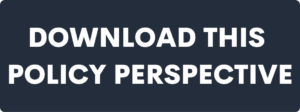
Does banning the internet keep people safe, or is it a breach of their human rights? Perspectives from South Asia.
Dr Leoni Connah, Lecturer in Government, Flinders University
POLICY PERSPECTIVES #7, November 2023 | DOWNLOAD THIS POLICY PERSPECTIVE | DOI.ORG/10.25957/0kmr-g359
Internet crackdowns have become characteristic to the Government of India’s tactics in Kashmir and the Indian Northeast since Narendra Modi came to power in 2014. According to the Government, internet shutdowns are sometimes a necessary and unavoidable measure that is put in place in the best interests of the civilian population. The internet shutdown in the Northeast state of Manipur since May 2023 is the latest in a series of severe restrictions that pushes us to question if banning the internet does in fact keep people safe, or if it is a violation of their human rights?
The Situation in the Indian Northeast
Comprised of eight states, Tripura, Sikkim, Nagaland, Mizoram, Arunachal Pradesh, Assam, Meghalaya, and Manipur, the Indian Northeast has long been subjected to draconian laws and human rights violations. This has been exacerbated by the Armed Forces Special Powers Act (AFSPA) and other measures that significantly reduce the freedom and liberty of civilians in the region. In May 2023, the state government shutdown the internet access in Manipur in response to ethnic violence worsening. The Manipur state government put severe restriction on the state’s internet services in order to prevent anti-social behaviour and the enticing of violence on social media platforms and the state wanted to prevent the spreading of misinformation. By July, the ban was partially lifted temporarily before being reinstated and a similar situation occurred in September when the ban was partially lifted again. Even when the restrictions are lifted, people still struggle to access their social media accounts, VPNs remain unavailable, and hotspots are inaccessible. It has been reported that restrictions may be lifted in ‘peaceful’ areas but at the time of writing, it seems the shutdown will continue throughout November, perhaps even longer. Manipur is now a strong contender to hold the record for the longest internet ban in India, coming just second behind Jammu & Kashmir.
What are the consequences of this? Internet shutdown prevents people from accessing basic information. It prevents people from accessing daily news and it prevents communication between friends and family. This can significantly reduce the welfare of the most vulnerable civilians because they cannot access basic government welfare schemes. Aside from violating human rights, internet shutdowns also have a detrimental effect on the economy. It causes the closures of businesses and if people can’t go to work, they can’t get paid. It also causes the closures of local schools that require the internet to function properly. Limiting access to online educational resources is damaging for student wellbeing and growth. These are just a few of the negative consequences that an internet shutdown can cause.
If the central government’s response to the ongoing ethnic violence in the Northeast is to clamp down on communication and the spreading of information, then surely we should have seen the levels of violence reduce by now? However, that is not the case so it doesn’t seem to be the internet that is threatening human security or even state security for that matter, but the deep-rooted issues that are causing the ethnic conflict between the Hindu Meitei majority and the Christian Kuki-Zo communities in the first place. According to the Supreme Court of India, access to the internet is a fundamental right. This coincides with the UN recommendation that information and freedom of speech is a basic human right that should be accessible to all. For Amnesty International, internet shutdowns in Manipur are a direct human rights violation.
Perhaps the issue around misinformation requires some rethinking. Instead of putting a ban on the internet, more could be done to raise awareness around fake news and what the BJP believe is ‘propaganda’ to educate civilians who may be subject to and consume such news stories. More information around the causes of the conflict and up-to-date reports of the worst affected areas would not only provide civilians with greater awareness, but also allow them to avoid the conflict hotspots. Preventing civilians from communicating with their friends and family does not necessarily protect them from misinformation, but instead most likely heightens their anxiety that the government are playing a role in the ongoing violence. Moving away from internet shutdowns is highly unlikely, because that would mean the government would have to take responsibility for some of their own actions in all of this.
Conclusion
It may sound idealistic, but everyone should be entitled to the internet and have equal access to information. To quote Prime Minister Narendra Modi himself, “if there are no human values and human rights, there is no democracy”. However, as we have seen in Manipur, this is not the case and India remains a country of contradictions. More attention should be drawn to this issue not only for the wellbeing of the people of Manipur, but also to hold the Government accountable. Internet bans are another form of neo-colonial governance that the central and state governments can inflict as and when they choose to do so.
Dr Leoni Connah is a Lecturer in Government at Flinders University
Dr Leoni Connah is a Lecturer in Government here at Flinders University. Dr Connah holds a PhD in International Relations from Lancaster University in the UK.
Her PhD thesis and ongoing research explores the changing nature of the conflict in Kashmir in recent years and the impact this has had for regional South Asian security, as well as human security. Dr Connah’s publications cover a wide range of issues on South Asian security, from US intervention in Afghanistan, to the conflict in the Indian Northeast. Such publications can be found in peer-reviewed academic journals including South Asia Research, Peace Review, Global Change, Peace & Security and others. Dr Connah has broader research and teaching interests in postcolonial politics, human rights, feminism, and conflict studies.
Dr Connah is currently the Student Success Lead for Flinders University’s Government discipline and Teaching Lead for the Jeff Bleich Centre.


